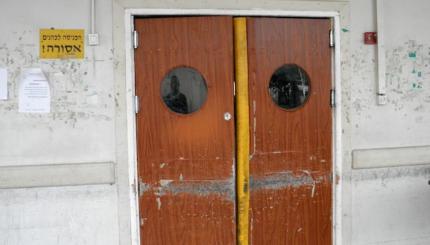For Jews, burial in Israel is considered a highly virtuous practice, so much so that it is customary to sprinkle a little earth from Israel in the coffin of Jews who are buried elsewhere.
- This tradition of burial in Israel is grounded in a number of Jewish sources, the best-known of which may be the teaching that during the time of the messiah, all Jews will be resurrected from the dead, and according to statements in the Midrash, those buried in Israel will be resurrected first. Those buried elsewhere will be brought to the holy land through underground tunnels, according to statements in the Talmud and elsewhere.
- The practice has its roots in the Bible, which records the patriarch Jacob’s insistence (in Parashat Vayechi) that his son Joseph swear not to bury him in Egypt, but instead to bury him with his forbearers in Hebron. Though exhuming the body of a Jew who has been buried is normally barred by Jewish law, an exception is made for reinterment in Israel.
- For some Jews, being buried in Israel is considered a symbolic statement of eternal attachment to the Jewish homeland. According to the Israeli Foreign Ministry, 1,590 people who died abroad were buried in Israel in 2016, a figure that includes Israeli citizens who died while they were out of the country. Some 4,900 Americans were buried in Israel between 2006-2016, and even more (5,100) from France.
How To Arrange for Burial in Israel
Burial in Israel requires both the purchase of a burial plot as well as the logistical arrangements necessary to prepare, transport and inter the body.
Plots can often be purchased directly from a cemetery, but it’s often easier to use an intermediary. A number of American synagogues and Jewish organizations own blocks of cemetery plots that they resell to their members, and at least one organization, Achuzat Kever, assists Jews from abroad who seek to purchase burial plots in Israel.
Once a plot is secured, arrangements for the body must be made. Some Jewish funeral homes in the United States offer the following services to those wishing to be buried in Israel:

Help us keep Jewish knowledge accessible to millions of people around the world.
Your donation to My Jewish Learning fuels endless journeys of Jewish discovery. With your help, My Jewish Learning can continue to provide nonstop opportunities for learning, connection and growth.
- Ritual preparation of the body for burial, known as (usually done before the body is transported to Israel).
- Arranging the necessary legal paperwork, including death certificates and authorization from the local Israeli consulate.
- Transport of the remains to an air cargo facility.
Arrangements must also be made to have the body received at the airport in Israel and transported to the cemetery for interment. Typically, this is done by the burial society associated with the cemetery where the plot was purchased.
Where in Israel are Burial Plots Available?
Jerusalem has always been the most sought-after location for burial in Israel, but space in the city is increasingly hard to come by and prices are substantial. The city has two major cemeteries — one in eastern Jerusalem, on the Mount of Olives overlooking the Old City, and the other, Har Hamenuchot, at the western entrance to the city. Lack of space at Har Hamenuchot has prompted the building of a massive underground catacombs to meet demand.
Beit Shemesh, a city roughly 20 miles to the west of the Israeli capital, has emerged as a popular alternative. Various Jewish organizations from around the world have reserved sections of the city’s privately owned Eretz Hachaim cemetery, which will also sell plots directly to consumers from its Brooklyn office. Burial plots are available in other Israeli cities as well;, however increasing space pressure has made it difficult to secure a plot in certain locations.
How Much Does Burial in Israel Cost?
The price of a burial plot varies considerably. Plots in the millennia-old Jewish cemetery on the Mount of Olives with its direct views of the Temple Mount are the most coveted of all and can run in the tens of thousands of dollars. One New York-based group offers plots on the Mount of Olives for $19,000 each, but some people in the Jewish funeral industry say they have heard of particularly choice locations in the cemetery selling for more than twice that amount. Plots in Beit Shemesh’s Eretz Hachaim cost around $8,000. Additionally, the funeral and transportation arrangements in Israel often run around $2,000, and one must also factor in the costs of preparation and airport transfer of the body in the United States. In the New York area, preparing a body and transporting it to Israel typically costs between $3,000-$5,000. From locations in the United States without direct flights to Israel, it can cost as much as $10,000.
Can Non-Orthodox Jews Be Buried in Israel?
Traditional Jewish law generally prohibits burying Jews and non-Jews together. Therefore, those wishing to be buried in a Jewish cemetery in Israel will typically have to demonstrate they are Jewish according to Jewish law — generally by having some Orthodox rabbinic body vouch for the deceased’s Jewish status. In the case of a non-Orthodox Jew, or someone who is not Jewish according to Orthodox Jewish law, this can occasionally present an obstacle to Jewish burial in Israel, though in practice this situation is said to arise only rarely. Civil cemeteries, a recent development in Israel, offer alternatives to individuals who for whatever reason are unable to secure burial in a religious cemetery. ITIM, a religious pluralism organization in Israel, offers assistance in navigating the religious bureaucracy surrounding burial.
Can Non-Jews Be Buried in Israel?
Israel has numerous Christian and Muslim cemeteries, which serve the local Muslim and Christian populations, but it is rare for people from overseas to request burial in them and we were unable to identify any organizations or businesses that assist in this process.
Sign up for a Journey Through Grief & Mourning: Whether you have lost a loved one recently or just want to learn the basics of Jewish mourning rituals, this 8-part email series will guide you through everything you need to know and help you feel supported and comforted at a difficult time.
Looking for a way to say Mourner’s Kaddish in a minyan? My Jewish Learning’s daily online minyan gives mourners and others an opportunity to say Kaddish in community and learn from leading rabbis.



